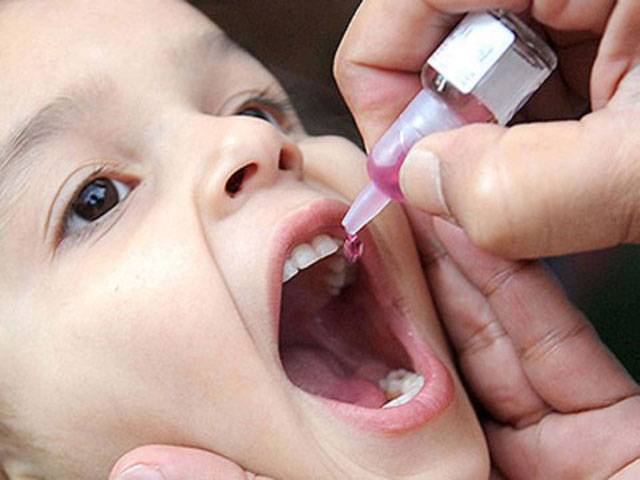ISLAMABAD - The Prime Minister’s Polio Cell has stated that the newly-found strain of the poliovirus is the result of persistently and extremely low routine immunization (RI) coverage in Pishin and Qilla Abdullah districts of Balochistan. The virus has impacted four children in Qilla Abdullah and one in Pishin.
The statement further added the ‘cVDPV (type 2)’ cases are because of poor routine immunization coverage that may cause the type 2 poliovirus to mutate and attain a form that may cause paralysis; after passing through multiple children via the oral route due to highly poor sanitation.
“The cVDPV (Type 2) is an extremely rare strain of the poliovirus and has been isolated in other parts of the world that includes countries with low RI converge such as Somalia and Nigeria,” stated the Senior Coordination for Polio Eradication at the WHO, Dr. Elias Durry.
According to the World Health Organization, cVDPVs (Type 2) can be rapidly stopped, with 2-3 rounds of high quality, large-scale polio campaigns. The cVDPVs are less virulent than wild polioviruses, and hence cVDPVs are easier to stop than outbreaks of wild poliovirus.
However, the outbreak response strategies are the same for both: immunize every child under the age of five years several times with OPV to stop polio transmission through polio campaigns and improvement of Routine Immunization.
According to the Prime Minister’s Polio Monitoring and Coordination Cell, the discovery of the new cases highlights serious performance gaps resulting in children being persistently missed in different areas of the Country. “Routine immunization in Balochistan remains abysmally low and urgent measures need to be taken by the provincial government to control the situation,” stated Shahnaz Wazir Ali, PM’s Focal Person on Polio Eradication.
The PM’s Polio Cell stated that necessary guidelines are being provided to the provincial health department. “Instructions have been issued to conduct an emergency campaign in Quetta, Pishin and Qilla Abdullah on the 15th of November as a response to the new strain of the poliovirus,” said Shahnaz Wazir Ali.
According to Unicef, the detection of the new strain of the poliovirus calls for improved operations and communications at the grassroots levels. “Strategies for demand creation must be urgently strengthened so care givers understand and seek out routine vaccination for their children so they are better protected from preventable diseases like polio,” said the Chief of the polio unit at Unicef, Dennis King.
He further added that an integrated response was critical to defeat the polio and other vaccine preventable diseases.
Friday, April 19, 2024
Low coverage cause of 4 polio cases in Balochistan

Futures drop as Middle East tensions simmer, Netflix slumps
5:18 PM | April 19, 2024
Four Customs officials killed in DI Khan
5:17 PM | April 19, 2024
Minister advocates for IT sector growth with public-private collaboration
5:16 PM | April 19, 2024
Opposition objects to oath-taking of MNAs amid lawlessness
5:15 PM | April 19, 2024
Electioneering to end on Friday night ahead of by-polls in 21 constituencies
5:14 PM | April 19, 2024
A Tense Neighbourhood
April 19, 2024
Dubai Underwater
April 19, 2024
X Debate Continues
April 19, 2024
Hepatitis Challenge
April 18, 2024
IMF Predictions
April 18, 2024
Kite tragedy
April 19, 2024
Discipline dilemma
April 19, 2024
Urgent plea
April 19, 2024
Justice denied
April 18, 2024
AI dilemmas unveiled
April 18, 2024
ePaper - Nawaiwaqt
Advertisement
Nawaiwaqt Group | Copyright © 2024





